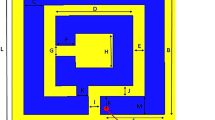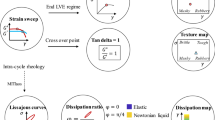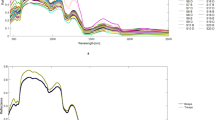Abstract
UNTIL recently, it was generally believed that human subcutaneous fat serves as an effective insulator. Nevertheless, we have been unable to trace any record of actual measurements of the thermal conductivity of human tissue. Bordier1, in 1898, made experiments on beef tissue by a satisfactory method. He found the muscle to conduct 1.8 times as well as the fat. A few other less satisfactory measurements were made about the same time with similar results. The human case was assumed to be similar.
This is a preview of subscription content, access via your institution
Access options
Subscribe to this journal
Receive 51 print issues and online access
$199.00 per year
only $3.90 per issue
Buy this article
- Purchase on Springer Link
- Instant access to full article PDF
Prices may be subject to local taxes which are calculated during checkout
Similar content being viewed by others
References
Bordier, H., Arch. Physiol., (5), 10, 17 (1898).
Hardy, J. D., and Soderstrom, G. F., J. Nutr., 16, 494 (1938).
Hatfield, H. S., and Wilkins, F. J., J. Sci. Instr., 27, 1 (1950). Hatfield, H. S., J. Physiol., 111, 10 P (1950).
Author information
Authors and Affiliations
Rights and permissions
About this article
Cite this article
HATFIELD, H., PUGH, L. Thermal Conductivity of Human Fat and Muscle. Nature 168, 918–919 (1951). https://doi.org/10.1038/168918a0
Issue Date:
DOI: https://doi.org/10.1038/168918a0
This article is cited by
-
A century of exercise physiology: concepts that ignited the study of human thermoregulation. Part 3: Heat and cold tolerance during exercise
European Journal of Applied Physiology (2024)
-
A century of exercise physiology: concepts that ignited the study of human thermoregulation. Part 1: Foundational principles and theories of regulation
European Journal of Applied Physiology (2023)
-
Sex Difference in Female and Male Ice Swimmers for Different Strokes and Water Categories Over Short and Middle Distances: A Descriptive Study
Sports Medicine - Open (2022)
-
Characterization of a fat tissue mimicking material for high intensity focused ultrasound applications
Journal of Ultrasound (2022)
-
Analytical and Experimental Solution for Heat Source Located Under Skin: Modeling Chest Tumor Detection in Male Subjects by Infrared Thermography
Journal of Medical and Biological Engineering (2018)
Comments
By submitting a comment you agree to abide by our Terms and Community Guidelines. If you find something abusive or that does not comply with our terms or guidelines please flag it as inappropriate.



